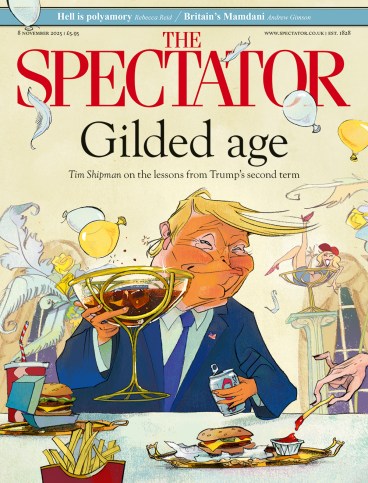
Philip Hensher
I have a theory that Mick Herron’s Slow Horses novels are an ingenious variation on Shakespeare’s Henry IV plays. If, in a future episode, River Cartwright ascends to his kingdom renouncing Jackson Lamb, and if Catherine tells us of Jackson/Falstaff’s death offstage, don’t be surprised. In any case, Clown Town (Baskerville, £22) is a magisterially accomplished novel and Herron a master of vivid voice, showing himself in a plot of shining, machine-like efficiency.
The other novel I adored was Tash Aw’s The South (4th Estate, £16.99) – a ravishingly written account of a brief, obsessive passion between two teenagers during a boiling hot Malaysian summer. The Guardian tried to claim that it was about climate change, but I think we can ignore all such attempts to suck the joy out of a tale of sweatily frenzied sex in a decaying orchard, sumptuous with the recalled joy of riding pillion on your taciturn boyfriend’s motorbike.
The diary of A.C. Benson finally got a beautiful, substantial edition, superbly edited by Eamon Duffy and Ronald Hyam (Pallas Athene, £60). Its wonderful wit and frequent absurdity outweigh the author’s recurrent silliness. I also strongly recommend Graham Robb’s The Discovery of Britain (Pan Macmillan, £22) – full of curiosity, good humour and literary inventiveness as it hops through episodes in the history of these islands.
Otherwise, the best non-fiction I read this year was an advance copy of Caroline Moorehead’s biography of Leonardo Sciascia, A Sicilian Man (Chatto, £25). I’m sorry to break the rules, as it’s not out until February, but it so fulfils its daunting task of giving a proper account of this great Sicilian writer, you will want to keep an eye out for it.
Julie Burchill
I was very keen this year on The End of Woke by Andrew Doyle (Constable, £25) and The Incidental Feminist by Tina Gaudoin (Swift, £22). The first is a lovely blend of righteous polemic and wishful thinking; the second a sparky, seditious re-examination of Margaret Thatcher. And any year with a Cormoran Strike novel in it is a good one. I’m much enjoying The Hallmarked Man by Robert Galbraith (Little Brown, £30) – yet another in the canon of this great novelist, who is also, I believe, quite commercially successful.
Anna Aslanyan
Books about the state of the nation are ten a penny, so it was a pleasant surprise to find a novel that is as witty as it is topical. The plot of Natasha Brown’s Universality (Faber, £12.99) has it all: an amoral banker, an iconoclastic columnist and a radical anarchist movement, to say nothing of a missing gold bar. There are manipulative media types discussing diversity and demographics, as well as people fighting culture wars in the name of this or that cause. In this world – our world – nothing escapes cynical exploitation. Class, race, inequality, tragedy – everything can be weaponised, just like a heavy piece of gold, and no one is to be believed. ‘Let’s actually have a proper conversation about the things that matter to everyday Britons,’ an all too familiar character says in an all too familiar situation. ‘Real problems, real solutions.’ Don’t expect to find any in this brilliant satire.
Francis Wheen
The most beguiling memoir I’ve read this year is Victoria Whitworth’s Dust and Pomegranates: How Greece Changed Me Forever (Apollo, £20). It has the texture of a dream on a hot Aegean night, as Whitworth’s youthful adventures – and shocking misadventures – commingle with stories from Greek legend to produce startling ancient echoes.
My greatest cause for rejoicing was a new novel from Harriet Lane, the laureate of stalking, long after those of us who loved Alys, Always (2012) and Her (2014) had given up hope of any more. Like its predecessors, Other People’s Fun (Weidenfeld, £20) has a female narrator who seems at first to be a nondescript mouse but turns out to have sharp little teeth and a scarily observant eye. It’s funny, creepy and unputdownable.
Frances Wilson
Two books about books gave me the most pleasure this year. The Book Game by Frances Wise (HarperCollins, £16.99) is a wonderfully clever and howlingly funny thriller set in a writing retreat at the home of a pampered Cambridge don whose days at the top are numbered. Frances Wise is the nom de plume of Adam Smyth and Chloë Houston, both professors of Renaissance literature, and the name is a tribute to Francis Wise, the 18th-century librarian who built the house on which the book is based.
The Invention of Charlotte Brontë by Graham Watson (The History Press, £22) was published in the UK last year but received almost no notice until its US publication this summer. How could a book this riveting have slipped under the radar? Watson’s subject is the turbulent history of Elizabeth Gaskell’s classic biography, The Life of Charlotte Brontë. It was written to expose everyone she believed had hastened her friend’s death, and Gaskell went at her task with an ice pick. Accusations of libel led to the appearance of the diluted edition with which we are now familiar. ‘I don’t think there ever was such an apple of discord as that unlucky book,’ Gaskell reflected.
Genevieve Gaunt
Beth Brower’s The Unselected Journals of Emma M. Lion (self-published, available on Amazon) is an exceptional series set in Victorian London and one of the richest, most poignant and hilarious pieces of literature I have read. Twenty-year-old Emma returns in 1883 to her house in an eccentric enclave of Primrose Hill, where she must navigate suitors, financial straits and profound grief. The diaries are peppered with Latin phrases, quotes from the Romantics, Shakespeare, the Bible, Walt Whitman and Ralph Waldo Emerson and I can’t stop talking about them. Brower reads like an American Jane Austen and the books are selling like wildfire, due to word of mouth. But I must admit to an interest since I narrated the eight volumes for Audible.
Ruth Scurr
Helen Garner’s How to End a Story: Collected Diaries (Weidenfeld, £20) spans the years 1978-95 and maps the personal emotional landscape of Australia’s most renowned living writer. I can imagine Garner, like Dorothy Parker, stepping up to receive that accolade and wryly remarking ‘I never thought I’d make it!’, because the diaries are crammed with the author’s self-doubt and the compelling struggle to sustain creativity as her second marriage collapses, and then her third. At the climax, when she goes berserk, starts smashing up the house and stabbing her novelist husband’s favourite Mont Blanc pen into the proof copy of his new novel to destroy the nib, Clive James calls to recommend a couple of tango teachers. In fiction this wouldn’t be credible, but in life it is. Garner’s diaries are a riveting monument to the creative process, as important as Virginia Woolf’s, but with more sex and chaos. I could not stop reading.
Andrew Lycett
I’ve tended to admire rather than love Ian McEwan’s novels, but What We Can Know (Cape, £22) is exceptional. It brims with ideas and fine writing as it mixes science fiction, literary whodunit and heart-stopping emotion to tell of the quest for and (in a chronological reversal) genesis of the lost manuscript of a fabled poem. The setting is a 22nd-century Britain ravaged by floods caused by political and environmental excess, though somehow still quaintly functioning.
Manuscripts also feature at the centre of Jeff Towns’s The Wilder Shores of Dylan Thomas (H’mm Foundation, £35). In his jaunt through the alternative literary culture of the past 50 years or so, Towns, a legendary Swansea bookseller, has bottled his excitement in chasing down rare manuscripts about and for poets, artists and clients, ranging from Allen Ginsberg to the National Library of Wales.
Out of several excellent biographies this year none has rivalled The Boundless Deep (HarperCollins, £25). Richard Holmes again proves a master of his craft as, with seemingly minimal effort, he evokes Alfred Tennyson’s early years against the backdrop of the shifting scientific discoveries of the early 19th century.
Nicholas Lezard
Both of my favourite books this year have been works of criticism. They were also first published a long time ago. First: Dorothy Parker’s Constant Reader: The New Yorker Columns 1927-28 (McNally Editions, £15.99). It was actually republished at the end of last year, but so what? You might remember her view of The House at Pooh Corner – ‘Tonstant Weader fwowed up’ – but even in this short book there is a gag on every page. A century on, her jokes are as funny as they were then; and her bluntness and honesty about the chore of reviewing make today’s critics, myself included, look like timid jobsworths. If she can’t finish a book, she says so. Of one eminent writer: ‘His books are of the golden great. And I couldn’t read all the way through one of them to save my mother from the electric chair.’
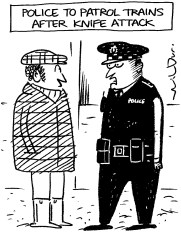
The other favourite is Henry James’s On Writers and Writing (NYRB, £23). This is James at his most approachable, and if I’d had the space I would have quoted what he says about Flaubert. But it’s thrilling to read his contemporary reviews of, for example, Our Mutual Friend, which is ‘to our perception the poorest of Mr Dickens’s works’.
Anne de Courcy
In these days of doom and gloom, of memoirs hinged on tragedy or trauma, a book that cheers is a treat. Harriet Cullen’s story of her mother, as recounted in Lady Pamela Berry (Unicorn, £25), did this for me. Pam Berry, the daughter of the brilliant F.E. Smith, the wife of a press lord and the most famous political hostess of her generation, was well placed to know ‘everyone’ – and she did. The high-level gossip, argument and sometimes vicious indiscretions round her dinner table bring her era vividly to life – there are titbits about many of the most celebrated figures of the age. Pam (as everyone called her) was combative, forceful and never bound by considerations of courtesy or discretion. She was so fixated on her social life that as a mother she was appalling – but as an author she makes for a very good read.
Andrea Wulf
I devoured Lily King’s new novel in one sitting – she’s one of my favourite contemporary writers. Heart the Lover (Canongate, £18.99) is a beautiful evocation of love, friendship and loss, told with great tenderness and verve. I also loved Madeleine Thien’s glorious The Book of Records (Granta, £20). The novel brings together the unlikely constellation of the 8th-century Chinese poet Du Fu, the 17th-century philosopher Baruch Spinoza and the 20th-century German-Jewish philosopher Hannah Ahrendt. It’s clever, quirky and magnetic.
My two favourite non-fiction books this year are Robert Macfarlane’s Is a River Alive? (Hamish Hamilton, £25) and Richard Holmes’s masterful Tennyson biography, The Boundless Deep (HarperCollins, £25). I think Macfarlane is England’s best nature writer, and once again his prose sings, its rhythm mirroring the subject matter. It’s liquid (or riverine) – surging, eddying and magnificently alive. The Boundless Deep reveals a new and compelling Tennyson, very different from the bearded Victorian we knew; and few can illuminate and interpret poetry with the insight, delight and skill that Holmes brings.
Mark Cocker
Just Earth: How a Fairer World Will Save the Planet by Tony Juniper (Bloomsbury, £20). The chair of Natural England demolishes the argument, often advanced by the rich to defend their interests, that nature is an expensive luxury and its despoliation is the inevitable consequence of wealth creation. Juniper marshals his evidence brilliantly and shows how social justice and living within the means of our planet are part of a single achievable political project.
A belated shout-out for Haydn Middleton’s The Ballad of Syd & Morgan (Propolis Books, £11). Over a winter’s day of fireside chats, the novelist E.M. Forster and the founder-member of Pink Floyd, Syd Barrett, discover that they have far more in common than living in Cambridge. Full of tender humour and subtle psychological insights, the novel manages to be utterly convincing about a most unlikely chance encounter.
Stephen Bayley
An epicurean – indeed, elitist and indulgent – way to sympathise with the distress of Palestinians is to buy and cook from Sami Tamimi’s Boustany (Ebury Press, £30). The title is Arabic for ‘garden’ and this is Tamimi’s homage to his native country’s plant-based cooking. He is Ottolenghi’s business partner, but while Yotam’s recipes are exasperatingly complicated and aimed at Guardian-type aspirant sophisticates with a My Waitrose card, Sami’s are based in peasant culture. And all the better for that.
Simon May is an itinerant philosopher with academic positions in London, New York and Berlin. But you won’t find any flimflam about the noumenal self in Jump!: A New Philosophy for Conquering Procrastination (Basic Books, £16.99). This is a wise and good-humoured approach to a universal problem. May wears his learning lightly, but reading the book leaves you in no doubt that you have been pleasingly in touch with high intelligence. His advice? Just do it!
Jonathan Meades is much less reticent about displaying his prodigious learning. Indeed, he revels in exposing it. There are some who find his baroque locutions and delight in shocking tiresome; but I enjoy them, even if the physical bulk and enormous word count of Empty Wigs (Unbound, £25) makes it almost unread-able. Dipping into it is like sampling a box of dark liqueur chocolates, knowing that, like Russian Roulette, one or two are laced with strychnine. Still, Meades is a unique writer and personality. Anyone who cares about books and ideas needs to jump into Empty Wigs.
Sudir Hazareesingh
Henry Louis Gates Jnr’s The Black Box (Penguin, £10.99) is an erudite, engaging and uplifting journey across modern African-American writing. Drawing on his introductory lecture course at Harvard, Gates charts the African-American experience since the late 18th century. On the one hand, it’s a tale of literal and figurative confinement through slavery, racism and repeated (and ongoing) attempts at social and political exclusion; on the other, it’s a ‘place of sublime creativity’, in which black men and women challenge their oppression and forge new paths through magnificent artistic and literary contributions. From spirituals and jazz, the anti-slavery writings of Phyllis Wheatley, Frederick Douglass and Marcus Garvey through the Harlem Renaissance and the seminal works of W.E.B. Du Bois, Zora Neale Hurston, Richard Wright and Toni Morrison, Gates celebrates the diversity of views and perspectives among African Americans, their constant affirmation of their dignity and humanity, and above all their collective determination to be masters of their own destinies.
Lucasta Miller
Robert Douglas-Fairhurst’s Look Closer (Fern Press, £20) is a delightful and much needed paean, in our attention-deficit era, to the pleasures of close and slow reading, not just as part of the literary critic’s toolkit but as something we can all do. Every Valley: The Story of Handel’s Messiah by Charles King (Bodley Head, £25) is an extraordinary feat of storytelling, effortlessly weaving together the many strands that lie behind one of music’s most iconic works. And Georgios Varouxakis’s rigorously analytical The West: The History of an Idea (Princeton, £35) offers an antidote to unnuanced, polarised geopolitical thinking.
Claire Lowdon
This year I read Helen Garner’s collected diaries, and I would swap all 816 pages of them for her slim 2008 masterpiece The Spare Room (republished by Canongate, £9.99). In this powerfully compact memoir-novel, the narrator Helen hosts her friend Nicola for three excruciating weeks – excruciating not because Nicola is dying of bowel cancer but because she refuses to believe that this is so. Helen watches, bewildered and enraged, as Nicola swears fealty to shady doctors promising miracle cures. She details the gruelling physical work of caring for an extremely sick person and bravely documents her own emotional responses, from anger through despair and finally a strong instinct for self-preservation. An intensely focused meditation on friendship and death, suffused with the acrid stench of truth.
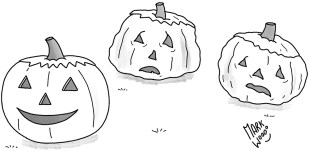
Francesca Peacock
Francesca Wade’s Gertrude Stein (Faber, £20) is a literary mystery that had me hooked this summer. Why is Stein remembered most for her role as a collector or muse rather than an author? What is the politics of receiving one of Alice B. Toklas’s omelettes? Wade brilliantly unravels the myths and smokescreens to reach a Stein who feels more human, more readable and more truly groundbreaking in her writing.
Helen Carr’s Sceptred Isle (Hutchinson Heinemann, £25) is a vivid retelling of all the conflict, regicide and drama of 14th-century England. It had me marvelling at the author’s narrative skills and just how grossly grim the bubonic plague must have been.
Michela Wrong
I spent months helping out on an investigation into a previously unknown company which sells software to dictatorships tracking political dissidents abroad, so Ronald J. Deibert’s Chasing Shadows: Cyber Espionage, Subversion, and the Global Fight for Democracy (Simon & Schuster, £20.80) remains one of the most important books of the year. Deibert founded the Citizen Lab, which operates out of the University of Toronto and does vital work exposing how the gadgets on which we rely – our phones and laptops – are being used to spy on us.
The Democratic Republic of Congo is back in the news, so I relished the chance to revisit its past in fictional form. Published last year, William Boyd’s Gabriel’s Moon (Viking, £9.99) focuses on the sinister role western intelligence services played in the 1961 murder of Patrice Lumumba, Congo’s first elected prime minister. A befuddled travel writer, a chilly spy master, triple crossings, murky assignations down the cobbled streets of European capitals – this is familiar Boyd territory, but he tells the story supremely well.
As someone who once spent a year living in a hotel – Kinshasa’s Intercontinental – I’m currently engrossed in The Finest Hotel in Kabul (Hutchinson Heinemann, £25) by the veteran war correspondent Lyse Doucet. It tracks Afghanistan’s turbulent history via the fortunes – and varying beard lengths – of the staff she befriended over decades spent checking into the Intercontinental in Kabul. Doucet has an uncanny capacity to get inside the heads of the men and women who put on brave smiles and provided neatly folded napkins as the Taliban brought the world crashing around their ears.
Next on my reading list is Unbroken Chains by Martin Plaut (Hurst, £25). The former BBC World Service Africa editor places the now well-documented horrors of the transatlantic slave trade in a wider historical context. Plaut points out that slave trading across the Indian Ocean went on far longer. It was not a foreign import: enslaving prisoners was standard practice in Sokoto and Ethiopia’s kingdoms and elsewhere. And slavery is still being practised on the continent today.
Marcus Berkmann
I’m still in my Elizabeth Strout phase. Having mopped up the latest, Tell Me Everything (Penguin, £9.99), I am now venturing into the earliest work. Her novels, the sort of thing clever young men would despise, are domestic, predominantly about emotions and unfailingly kind to their often flawed, unhappy characters. And all are set in the same corner of Maine where Strout has long lived. The main (and many of the secondary) characters recur sooner or later, so that she creates a lattice of relationships that resembles the most complex spider’s web. Amy and Isabelle, the titular characters of her first novel, recur in her latest as minor figures, without any acknowledgement in the text, which assumes that you the reader either don’t care or have already worked it out. I think Strout may be some kind of witch – the greatest literary witch, in fact, since the late and obviously psychically gifted Hilary Mantel. If you haven’t read her, you are surely missing out – unless you are one of those clever young men I mentioned earlier.
Boyd Tonkin
The bullying jingoists who now rule our political landscape never show much love or knowledge of the country whose flag they worship. They might learn a lot from Sherin Aminossehe’s charming and erudite 200 Years of Britain’s Railways in 14 Journeys (Frances Lincoln, £35), a glorious tour of history on the track and in the station, illustrated by delightful drawings. The author-artist is an Iranian-born British architect (she became the Ministry of Defence’s first director of infrastructure). Both Betjeman and Pevsner would have loved this book.
Two great biographers refresh and reframe icons of Englishness. In A Year with Gilbert White (Faber, £25), Jenny Uglow traces the pioneer naturalist’s life through 1781 and re-animates the man, his beloved Hampshire countryside and his age. Richard Holmes’s The Boundless Deep (HarperCollins, £25) blows the Victorian cobwebs from Alfred Tennyson to reveal a wayward, passionate young poet from deepest Lincolnshire entranced and disturbed by the science and innovation of his time – railways included.
Peter Parker
The year’s most enjoyably arcane book was The Stammering Librarian by the antiquarian bookseller Timothy d’Arch Smith (Strange Attractor Press, £30). This hugely entertaining collection of essays includes, among other things, scholarly notes on Oscar Wilde and Aleister Crowley, a glossary of public school slang (1950-54), a sternly critical assessment of the 1982 Wisden, a gamey and very funny slice of early autobiography and a marvellous parody of Anthony Powell writing about the (imaginary) Revd. T. Hartington Quince, author of Bats, Boots and Bathing-Togs and other volumes of verse.
I also greatly admired Iris Wolff’s Blurred (Moth Books, £9.99), skilfully translated from the German by Ruth Martin. Ingeniously constructed, and largely set in rural Transylvania, it consists of seven apparently discrete and wonderfully evocative stories that gradually coalesce into a gripping and moving novel about a young man coming of age during the Ceausescu period.
A.N. Wilson
I did not really like reading Entitled by Andrew Lownie (William Collins, £22), but it is compulsive, persuasive and devastating. It is not so much about the appalling lack of judgment displayed by the former Prince Andrew and Sarah Ferguson in their choice of dodgy friends. It is about their pathological greed and evident sense of entitlement. What is so disturbing about the book is that you realise that they are not the only members of the royal family who share it. Not since my schooldays, when I was lost in Samuel Rawson Gardiner’s histories of the 17th century, have I so felt the lure of republicanism. As a grown-up, I’ve always been a (sort of) monarchist. But Lownie makes me feel again an affection for the Good Old Cause. Milton, thou shouldst be living at this hour. Come back, Oliver, all is forgiven.
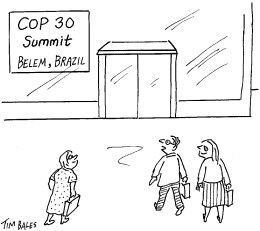
Ian Sansom
Tired, disorganised or perhaps just too lazy, I read Kevin Killian’s Selected Amazon Reviews (Semiotext(e), £30) too late last year to be able to recommend it, so I’m doing so now instead. That’s the old devil-may-care Spectator spirit, surely? Killian, who died in 2019, was a poet and playwright who wandered Amazon’s endless marketplace as a kind of literary flâneur, leaving behind hundreds of reviews that blur the line between criticism, confession and performance art. Selected Amazon Reviews is precisely what its title suggests: a gathering of his reviews of books, films and random household goods, written with peculiar candour and care. As a posthumous collection, it reads less like a catalogue than a self-portrait – a poignant reminder that the literary impulse might survive even in those places least designed to sustain it.
Justin Marozzi
Britain has a long and successful history in welcoming foreign investors and avoiding difficult questions as the money pours in, whether from Russian gangsters or Arab dictators. Malise Ruthven’s Unholy Kingdom: Religion, Corruption and Violence in Saudi Arabia (Verso, £25) is a masterful and disturbing dissection of the kingdom.
I loved Anthony Cheetham’s A Life in Fifty Books (Apollo, £25), a sharp but affectionate memoir from a publishing maestro and entrepreneurial powerhouse; and the French writer Sylvain Tesson’s rather magnificent, gloriously pretentious White (Polity Press, £20), the story of a high-altitude ski traverse of the Alps.
Was there a finer, more underappreciated travel writer in the 20th century than Norman Lewis? John Hatt’s collection of his writings, A Quiet Evening (Eland, £25), is a sumptuous reminder of what a treasure the man was. Look out for priceless encounters with Hemingway in Cuba and a cannibal in Indonesia. ‘He was studying me speculatively and with what might have been modest approval. “If you had come here ten years ago,” he said, “we would have eaten you.’”
William Dalrymple
Thant Myint-U produced my favourite biography this year, Peacemaker: U Thant, the United Nations and the Untold Story of the 1960’s. It is a brilliant portrait not just of a great and unjustly forgotten man, but of an entire age that feels very distant now: an era of optimism and idealism. Peacemaker is a model of biographical thoroughness and insight, beautifully written and artfully shaped, and it tells its extraordinary story with an enviable mixture of writerly skill and scholarly authority.
I also loved the poet Jeet Thayil’s family memoir, The Elsewhereans. It contains writing of great skill, precision, and wit, taught as a coiled spring, and laced with pin-sharp, pitch-perfect dialogue.
I learned a great deal about the ancient history of Gaza from the essays collected in the catalogue of the brilliant Paris exhibition, “Trésors sauvés de Gaza: 5000 ans d’histoire” (Saved Treasures of Gaza: 5000 Years of History). Looking to more recent events in Palestine, Anne Irfan has just produced an excellent primer, A Short History of the Gaza Strip while Jean-Pierre Filiu has just published a supplement to his wonderful history, Gaza, called A Historian in Gaza. All three books count as essential reading to understand what is happening in that most troubled and tragic region.

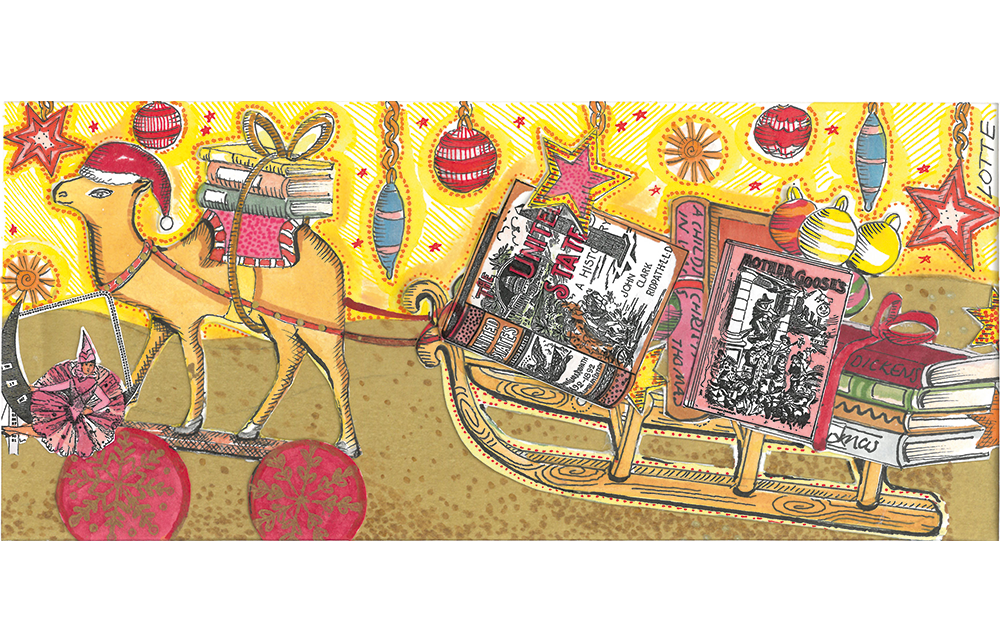





Comments